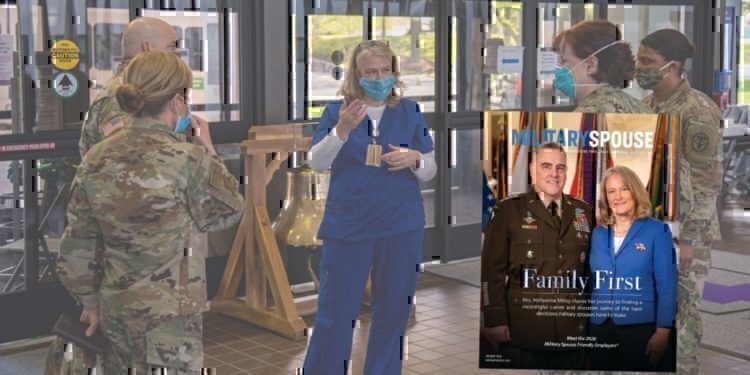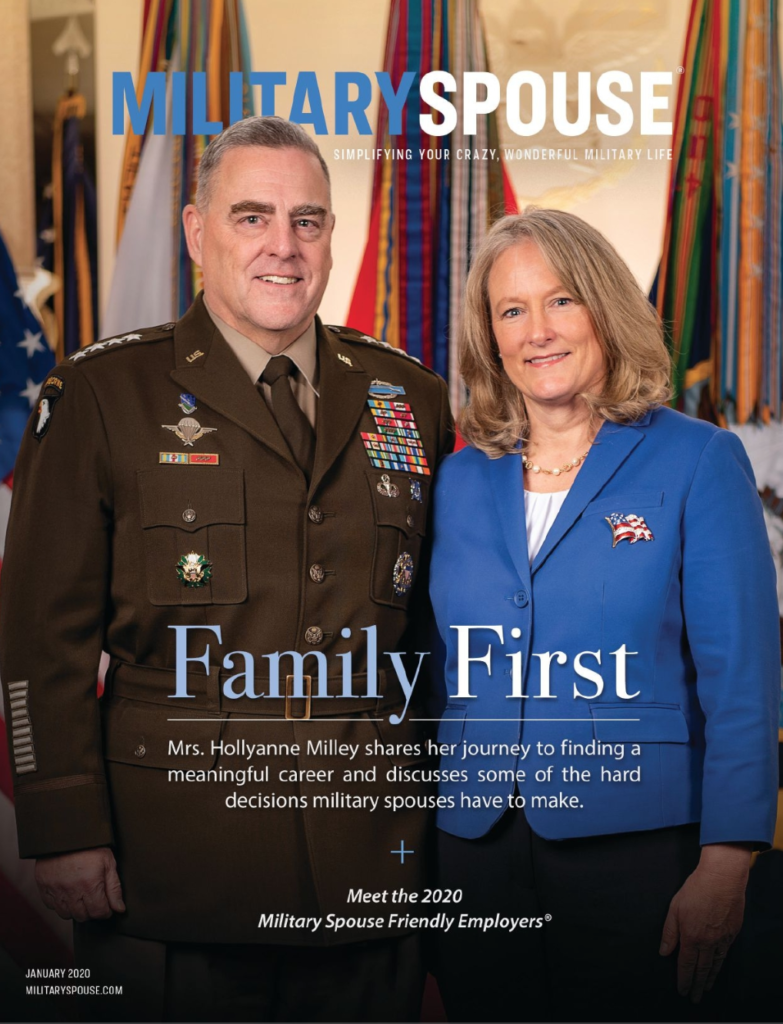Florence Nightingale redefined what it meant to be a nurse 150 years ago. Her work to improve unsanitary conditions at a British base hospital during the Crimea War reduced the death count by two thirds and revolutionized the way a nurse’s role was viewed, paving the way for the occupation of nursing we know today. May 12, 2020, marks the 200th anniversary of her birth, and, not coincidentally, the world recognizes 2020 as the International Year of the Nurse! And, May 6-12 is National Nurses Week.
In honor of these two observances, we would like to highlight the historic ties nurses have with the U.S. military and recognize and thank all nurses—especially those nurses who serve in the military or who are military spouses. To help us with this effort we interviewed Mrs. Hollyanne Milley, a registered nurse for more than 33 years who is also the spouse of Gen. Mark Milley, the Chairman of the Joint Chiefs of Staff.
What has nursing meant to you in your 35 years as a military spouse?
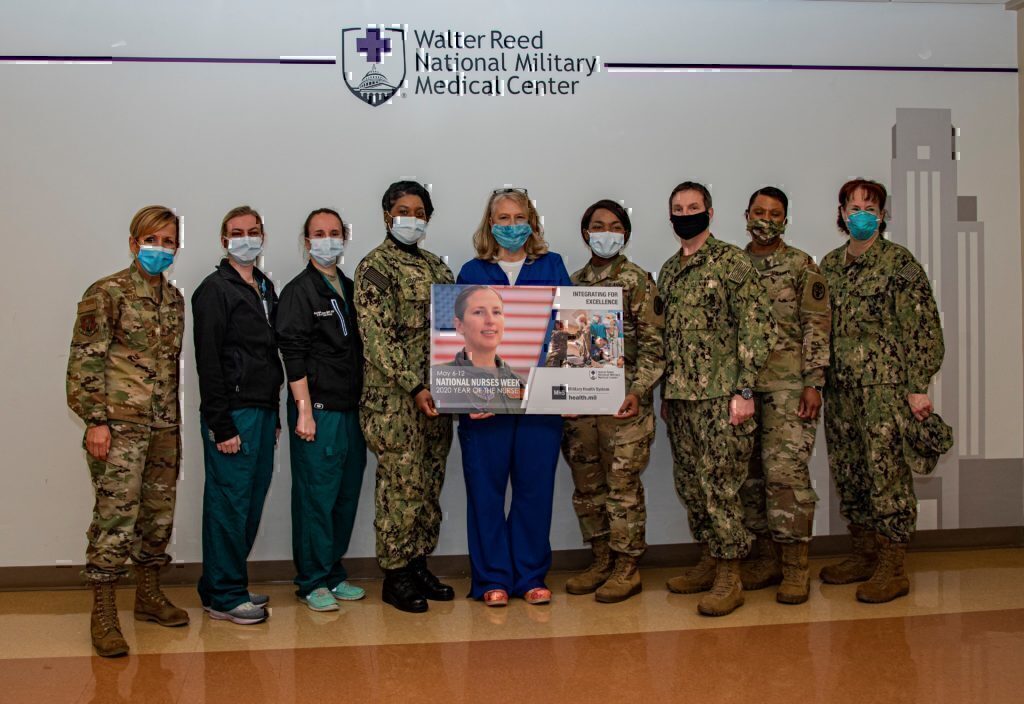
I’ve always been proud to be a nurse. I love nursing and caring for patients. And, being a nurse is an important part of my identity. My mother was my inspiration. She was a nurse, and I admired her resilience and persistence–the way she cared for her family while pursuing her dream despite life’s challenges. I admired her kindness and strength, her caring nature and her desire to give back, and I wanted to be like her. It seems quite fitting to me personally that National Nurses Week and Mother’s Day fall so closely to one another on the calendar.
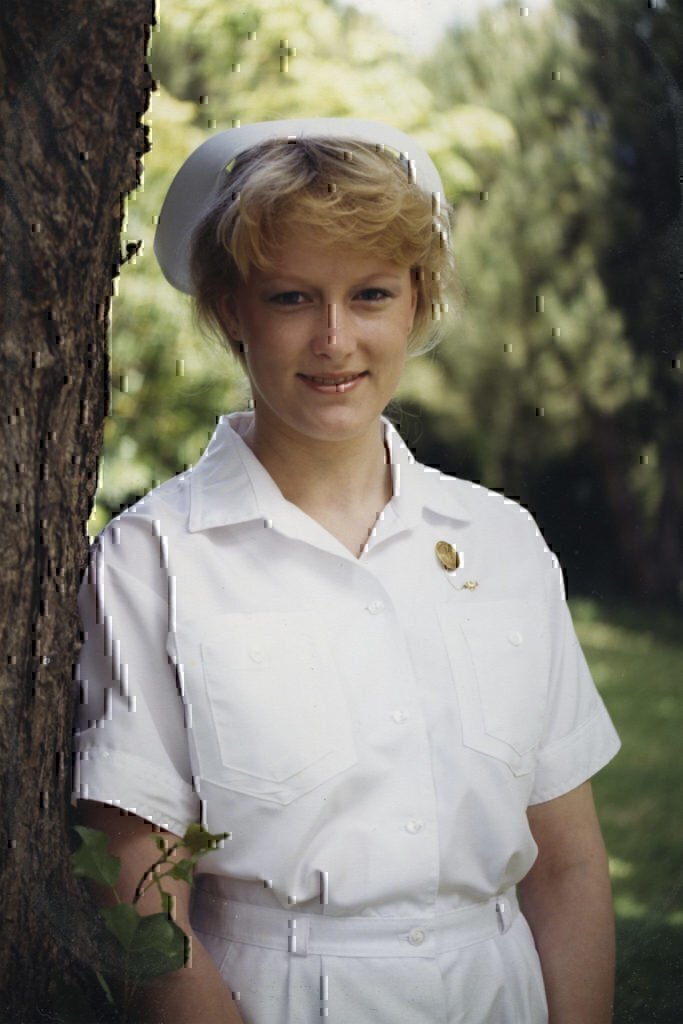
When I graduated nursing school in the late 1980s, I welcomed the transition from “whites to scrubs.” White hose, white leather shoes and the traditional cap morphed into the most comfortable clothes a person can wear—scrubs. From there, the experiences ranged as widely as the locations. Whether I was working in a Manhattan hospital with armed guards around the emergency room or treating snakebites in Louisiana with the snake in a paper bag so we knew which anti-venom to treat the patient with, I am grateful for it all.
I’ve been lucky to work as a nurse wherever we have lived, even if that meant I sometimes wasn’t paid. In Korea, for example, the Status of Forces Agreement did not permit spouses to work, so I volunteered to teach basic trauma life support to Soldiers on base.
I’m incredibly proud to have chosen a profession that is portable. As nurses, we are constantly updating our roles, responsibilities and education to meet evolving needs, such as the current pandemic.
For those who aren’t familiar, what would you like people to know about nursing?
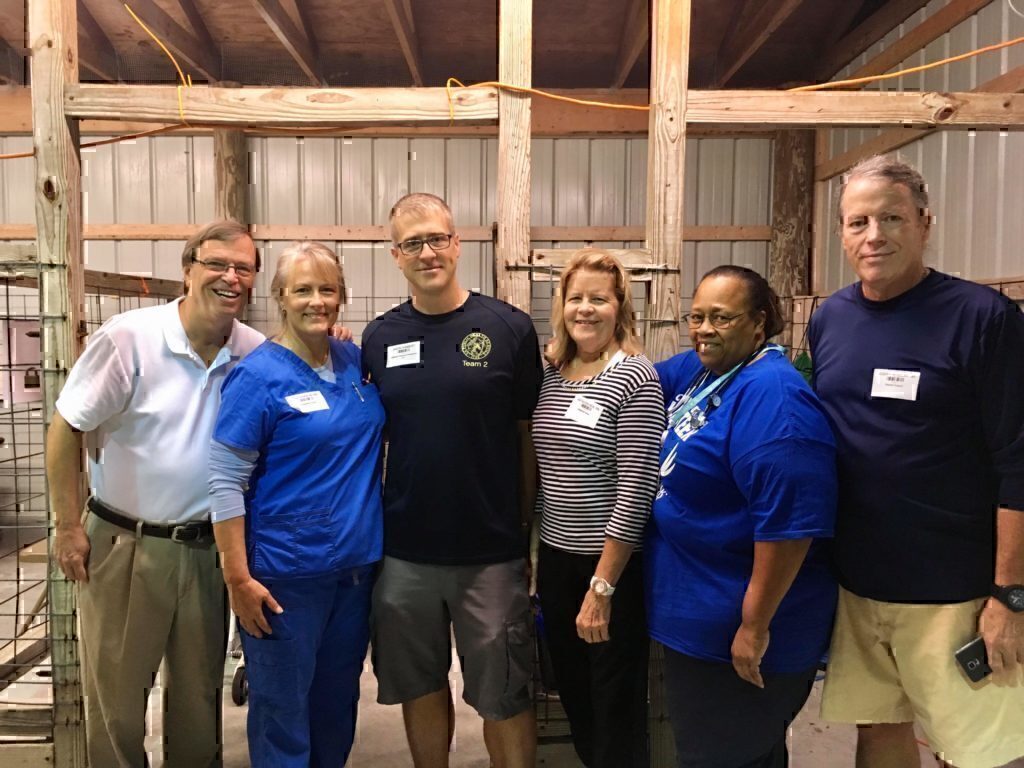
The words we often use to describe desired military traits and skills are actually many of the same words we use when we describe nurses. Along with being compassionate and empathetic, Nurses are innovators, educators, mentors, advocates, critical thinkers, problem solvers, change makers, influencers, and highly skilled leaders.
Nurses can speak for those who lack a voice. And, we are taught to treat all those in our care with dignity and respect, including the patient’s family members. While we may be anonymous to many of our patients, we treat each one with individual care and attention.
I was a critical care nurse for 18 years. As a nurse, we often see people at their very worst—I have cared for many patients who were confused, scared or unable to communicate. I made it a point to talk to them, to give them comforting human interaction, even if they couldn’t respond back. It’s when our patients are at their worst that nurses must be at our very best.
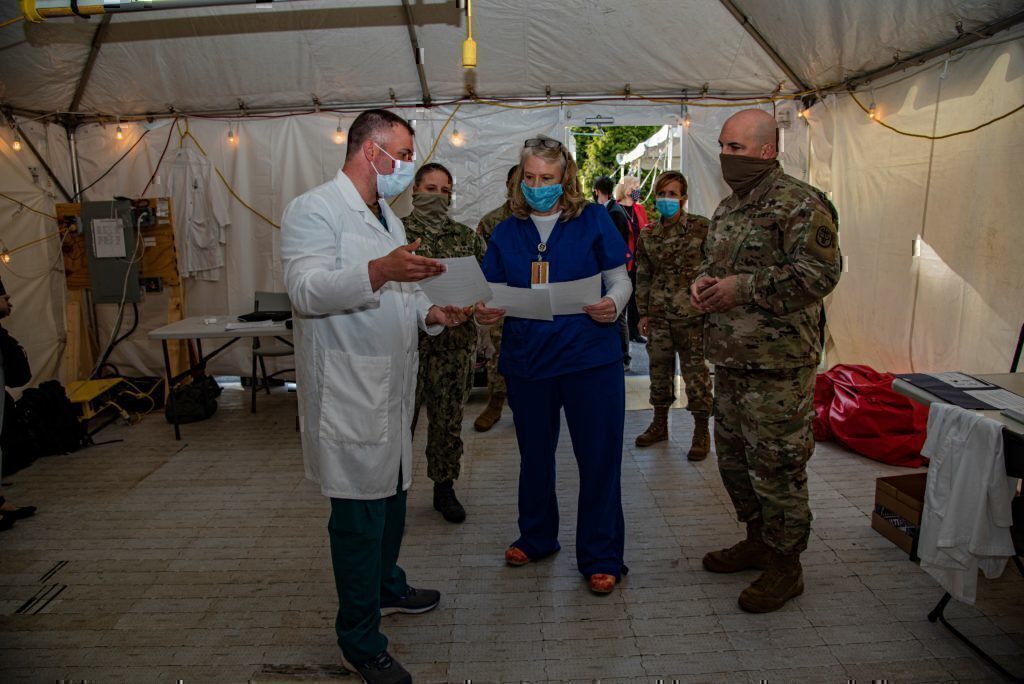
Something I’m especially fond of as a nurse is the sense of teamwork and professionalism. It is amazing when a trauma patient arrives in the ER, for example, and the whole team comes together to save a life. There are the hard times, too, of course. Those times where I’ve cried in my car on the way home wishing there was more I could have done for a patient or a family, or those moments where you hope and pray you will find the right words to comfort a patient’s loved ones. But, I can truly say I consider all of these moments an honor, and I don’t think I’m alone.
People who are called to nursing are driven by a desire to care for others. It’s rare that you meet a nurse that hasn’t been part of one, two, three or even 10 off-duty rescues. My own kids know that if there is an accident on the road we are stopping so I can help. And, nurses are often the go-to person for advice in a friend or family group.
When we think of nurses, many of us picture someone in scrubs. But, the world of nursing is much more varied, and not all nurses wear scrubs and clogs. Nurses work in mental health, in hospice care, as school nurses, as university nurse educators, in politics, and in the military. In fact, the Army’s first female Surgeon General was Lt. Gen. Patty Horoho—a nurse.
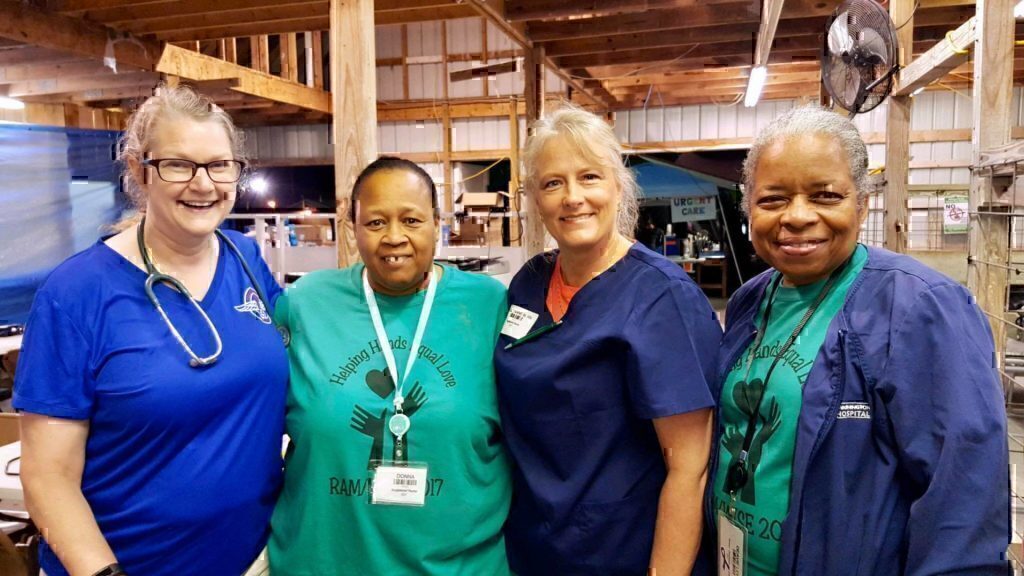
What is it like to be a nurse during this unprecedented pandemic?
One of the biggest shifts I’ve observed during our response to the novel coronavirus outbreak is a greater reliance on telehealth and telemedicine. In fact, at my current practice, we now conduct many of our medical assessments over the phone through telehealth. One added challenge of telehealthcare is that we worry about our patients feeling isolated. So, I will sometimes call a patient earlier than the appointment is scheduled for just to chat and see how he or she is doing. We constantly have to adjust and adapt our traditional nursing skills. In many ways, nurses, like everyone else, are adjusting and flexing as a result of the pandemic.
I would like to thank all the medical professionals and support staffs who are responding to this crisis. Nurses are but one component of a complex medical care team, and all deserve our thanks and praise right now.
Closing thoughts
I love that we have a week dedicated to honoring and recognizing nurses every year. Nurses around the world give so much and I am grateful that I chose this as a lifelong career. I think I speak for most nurses when I say that nurses have a passion and dedication for caring for others. They endure long shifts and odd work hours to care for patients and help their families. And, military nurses serve twice—they are serving both their patients and their country. They really have my admiration and gratitude.
Thanks to all who have dedicated their lives to caring for others, and Happy Nurse’s Week!
Photos: A recent trip Mrs. Milley made to Walter Reed to deliver cookies to nurses and clinicians there to say “thank you,” and to get an update on care provided to wounded warriors and support to their caregivers. U.S. Navy photos by Mass Communication Specialist 2nd Class Kurtis A. Hatcher/Released


